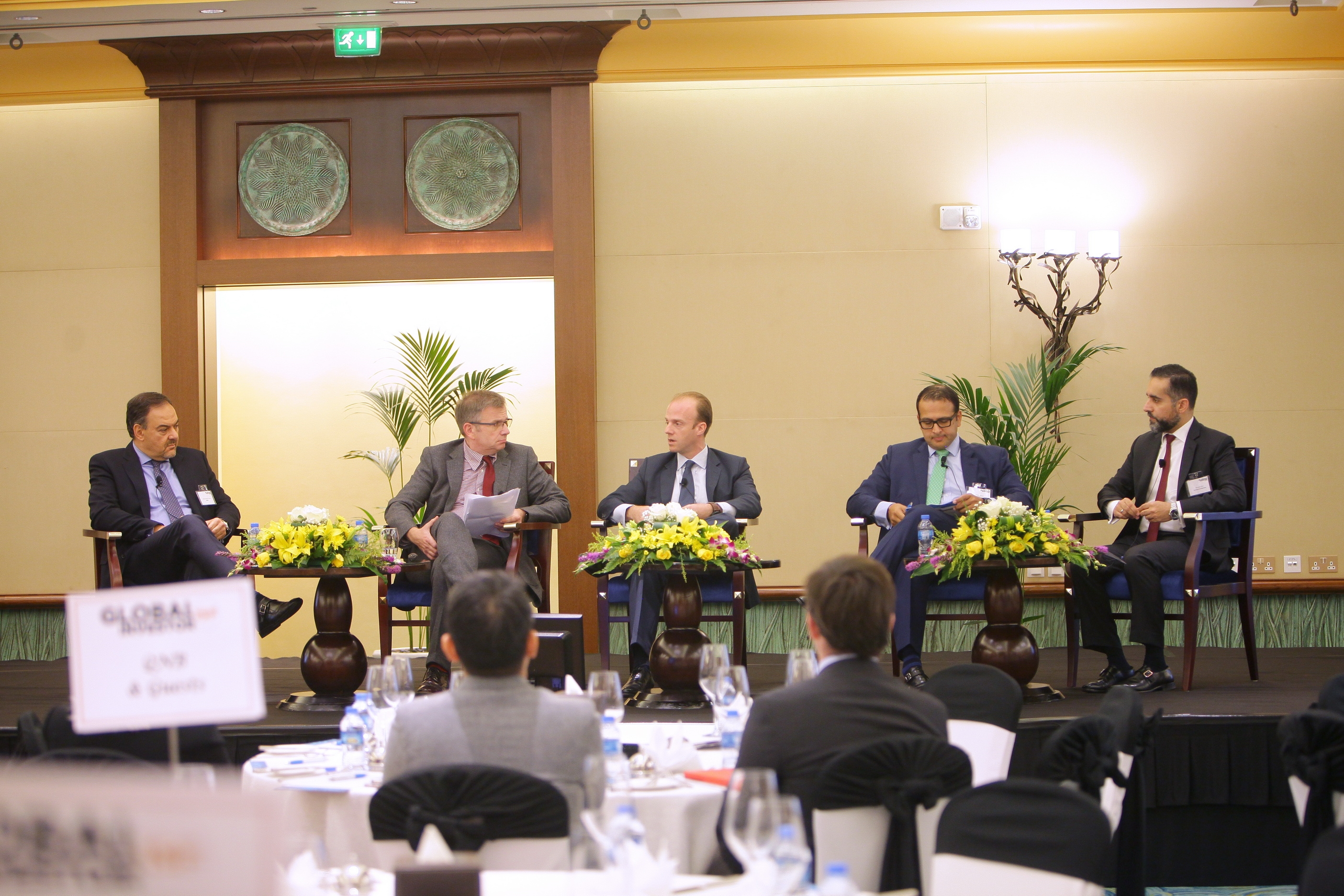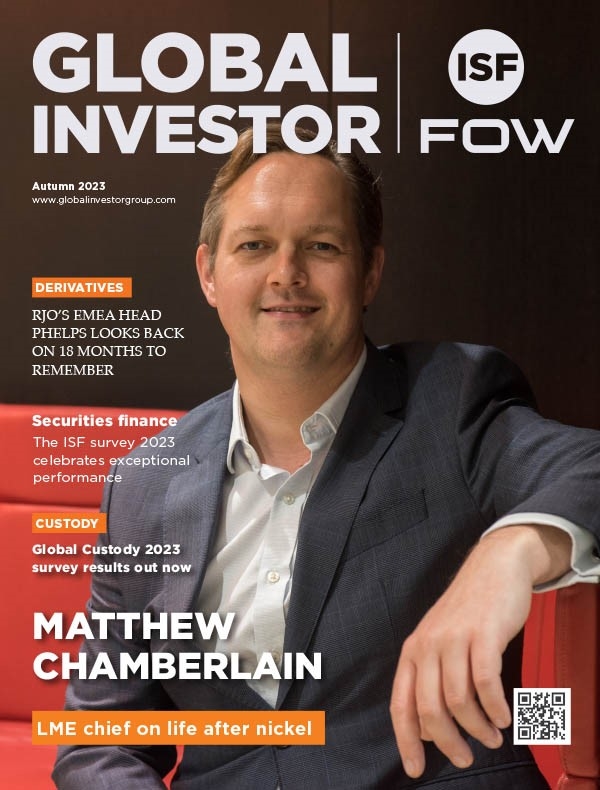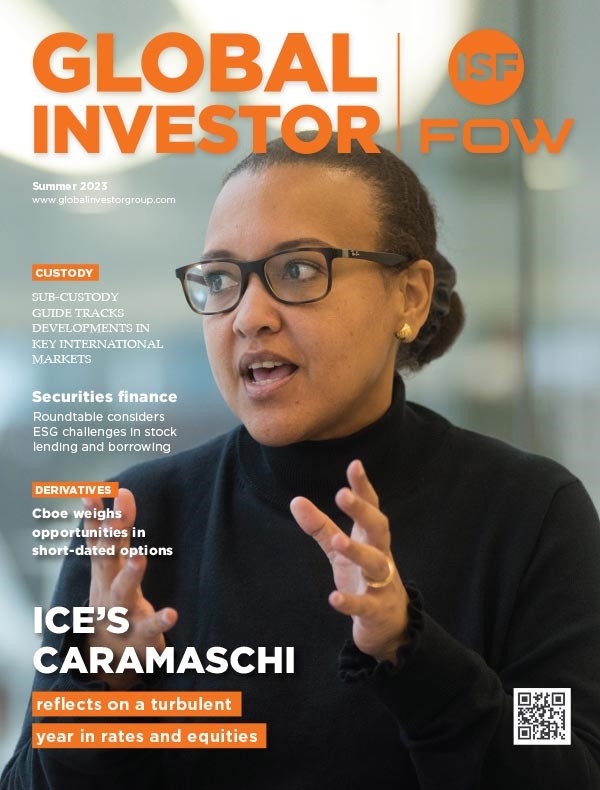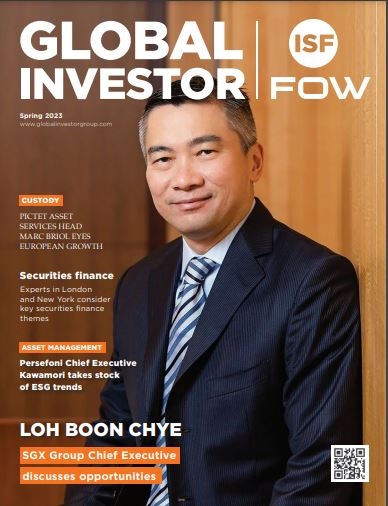MENA Capital Market Summit 2016 report

Capital markets across the MENA region are undergoing a
period of rapid reform, from the creation of liquid bond markets in the UAE and
the internationalisation of Saudi Arabia to the formation of a fintech
ecosystem in Abu Dhabi.
The seventh Global Investor/ISF Summit, which took place in Dubai on 26 September, brought together leading
industry figures to discuss the issues shaping the market. What follows are the
highlights of the discussions that took place.
GCC bond market boom
Bond markets
across the Gulf Cooperation Council (GCC) are undergoing rapid development, in
terms of both sovereign and corporate issuance.
The
emergence of a stronger regional fixed income market provides a concrete example
of how the lower oil price, which halved during the second half 2014 from above
$100 and has remained low and volatile since, has spurred market reform.
Ashish
Marwah, senior director – lead investment manager at ADS Securities in the
UAE, said that Gulf countries are now looking to build yield curves to provide
a basis for corporates to price issuance, citing Saudi Arabia's launch of a
$17.5bn sovereign bond.
“Look at how
strong the demand is for Saudi bonds among both primary and secondary
investors,” he said. “This is increasing liquidity in the market and increasing
the participation of foreign investors, which creates a two-way market that is
beneficial for all investors.”
One factor
that is attracting interest in MENA bond markets is the contrast with developed
markets where the most credit-worthy nations enjoy negative yields, said Saleem
Khokhar, executive director and head of fund management at NBAD in the UAE.
Khokhar
points out that the region also has favourable fundamentals in absolute terms. “When
you look at the GCC region, you see good reserves, low debt-to-GDP ratios and
strong government backing for a number of the government-related entities (GREs)
and corporates.
“So,
thinking beyond government bond issues, when our companies go to the market and
raise debt – as they will in the near future – you have quite a strong case for
a solid issue, plus decent yield coming to the market. That is all positive.”
However, the
boost to the bond markets didn’t mean that an imminent pickup in moribund
initial public offering (IPO) activity was also likely, he added.
“There won’t
be a general pickup in listings, but specific assets will come through from the
public sector, such as the Saudi Aramco IPO, and there are plenty of assets
that could come through on the UAE side of the equation as well,” he added.
The push for international
standards
The increasing number of international
investors moving into MENA markets has led to demands for changes in custody
and settlement arrangements to ones closer to international standards. New
regulations across the region have sought to bolster regional exchanges to meet
these demands.
“We see things such as short selling being talked
about more actively, and we may see this speed up in 2017,” according
to Mohamed Yasin, managing director at NBAD Securities.
There has also been significant movement in terms
of investment products being offered. “We’ve also seen things this year such as
an ETF being introduced on the Abu Dhabi Global Market (ADGM) and futures being
introduced on Nasdaq Dubai, reigniting activity last seen before 2008-09. All
these things are positive for us.”
Robert Ansari, executive director at index compiler
MSCI, agreed that demand for evolution in capital markets is in part driven
by the needs of foreign investors. “The demand that MSCI is hearing about from
its clients is largely driven by what is happening in Saudi Arabia.”
According to Ansari, regulation in the region is
evolving to capture the protection of local investors as well as seeking to
attract international investors. “They are thinking about regulation to provide
a framework for foreign investment," he said.
Muneer Khan, a UAE-based partners at
international law firm Simmons & Simmons, noted the important jurisdictional
challenges that need to be addressed between the varying regulatory frameworks,
such as ones within the UAE.
"We often get asked by international investors,
asset managers and financial institutions looking at greater involvement in the
region how the different jurisdictions fit together, and about the
interplay between regulatory regimes.
“We see increased dialogue between regional
regulators. We’re still some way from a passporting regime, but one of the
interesting and unusual factors is that some of the newer regulators and
authorities – such as those in the DIFC and the ADGM – are pushing that agenda
and acting as advocates for the industry,” said Khan.
Investor
relations
New regulations in the UAE have made it mandatory for
listed companies to establish an investor relations (IR) function and develop
proactive communications with the market.
Alex MacDonald-Vitale, chairman of the Middle East
Investor Relations Association, said that while infrastructure and regulation
have significantly improved in recent years enforcement remains a challenge.
“We need to establish a consistent standard, with
board directors and senior executives leading the cultural shift to greater
openness and accountability – precisely the effort that the IR role is designed
to support. The mechanics are there, now we just need to see delivery of the
international standards professional investors expect."
The IR function is still maturing, said
MacDonald-Vitale, with access, transparency and proactive disclosure bywords of
best practice. “These principles are the foundation for successful C-suite
engagement with investors, but it has to become an ongoing effort."
Research had shown that while a number of influential
investors had come in to the region with enthusiasm following a successful
first meeting with IR representatives and the C-suite, they were unable to remain
due to lack of continuity.
"For an institutional investor, the initial
meeting with executive management is just the beginning of a long-term process
in building trust and conviction. If senior representatives fail to engage for
follow-up due diligence meetings, professional investors lack the crucial
elements needed to retain their positions,” said MacDonald-Vitale.
Saudi transformation
The much-anticipated liberalising reforms in Saudi
Arabia, set out in its Vision 2030 reform blueprint, will be far-reaching and
some of its effects are already being felt.
Ryan Lemand, managing director and head of asset
management and wealth management at ADS Securities, highlighted the
"transformational" nature of the changes taking place in Saudi Arabia:
“Actions taken by policymakers in Saudi Arabia, such as opening up capital
markets, are moving things forward slowly but surely.”
While some investors took the recent news that
government ministers’ salaries are being cut as a sign of financial troubles,
Lemand argued the opposite: “The message is that they are reforming from the
top down.”
Lemand noted that many other changes in Saudi
Arabia that were taking place below the radar, such as the recent move from the
Hijri calendar to the Gregorian calendar. He said it was a huge change for a
conservative country such as Saudi: “It is all part of the message that it is
reaching out to global investors.”
Fintech ecosystem
Fintech has become established as core focus for the
Abu Dhabi Global Market (ADGM), with plans to establish the pre-eminent
ecosystem in the region.
The executive director of capital markets at the
ADGM’s Financial Services Regulatory Authority, Wai Lum Kwok, said that ADGM
has taken a proactive, top-down approach to foster and support a fintech ecosystem
for the MENA region.
"We have been actively developing the ecosystem
and bringing key fintech stakeholders together. Among the initiatives we have
introduced include the Regulatory Laboratory that allows fintech players to
experiment and develop their innovative solutions in a safe and controlled
environment without being subject to full authorisation requirements."
The importance of an ecosystem goes beyond fintech
itself as it informs the way that banks and financial services firms think
about the region, said Dima Jardaneh, executive director and head of economic
research for MENA at Standard Chartered.
“The region's ecosystem was very much centralised
around oil revenues, but now governments want to reach out to the private
sector and broaden the sources of funding.”
Dubai data
The volume of OTC transaction data emanating in or
from the Dubai International Financial Centre (DIFC) is expanding at rapid
pace, according to Brad Douglas, director of markets at the DFSA.
“Provisional data highlights that the amount and
significance of OTC fixed income transaction activity emanating in or from the
DIFC has increased significantly in recent years.
“In the 12 months to 2015, the amount of OTC fixed
income transaction activity was $1.3trn. For the six months to June 2016 the
level of OTC fixed income transaction activity has doubled to $1.2trn,
projected to be above $2trn for the year of 2016.”
Found this useful?
Take a complimentary trial of the FOW Marketing Intelligence Platform – the comprehensive source of news and analysis across the buy- and sell- side.
Gain access to:
- A single source of in-depth news, insight and analysis across Asset Management, Securities Finance, Custody, Fund Services and Derivatives
- Our interactive database, optimized to enable you to summarise data and build graphs outlining market activity
- Exclusive whitepapers, supplements and industry analysis curated and published by Futures & Options World
- Breaking news, daily and weekly alerts on the markets most relevant to you



